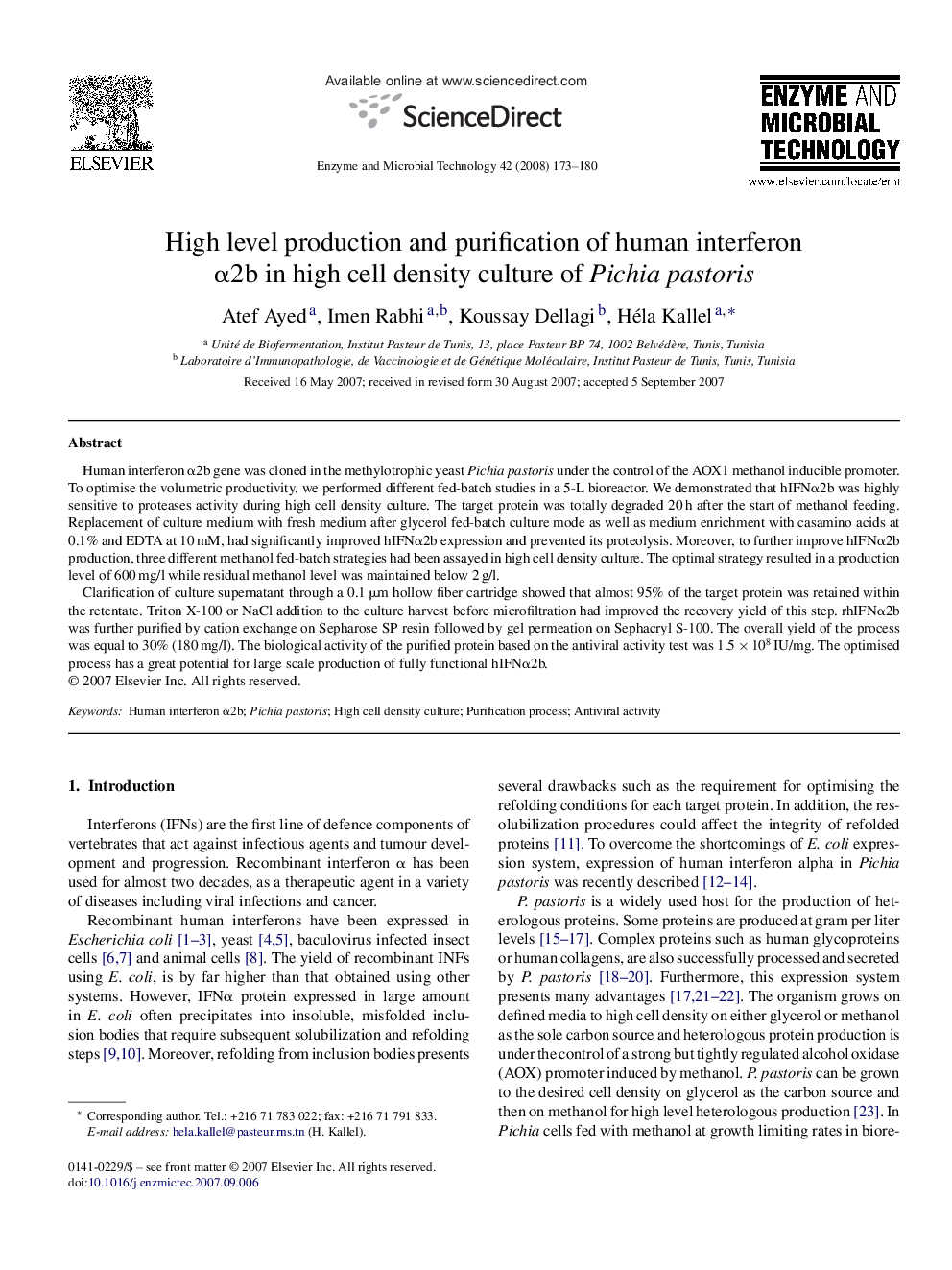| Article ID | Journal | Published Year | Pages | File Type |
|---|---|---|---|---|
| 18419 | Enzyme and Microbial Technology | 2008 | 8 Pages |
Human interferon α2b gene was cloned in the methylotrophic yeast Pichia pastoris under the control of the AOX1 methanol inducible promoter. To optimise the volumetric productivity, we performed different fed-batch studies in a 5-L bioreactor. We demonstrated that hIFNα2b was highly sensitive to proteases activity during high cell density culture. The target protein was totally degraded 20 h after the start of methanol feeding. Replacement of culture medium with fresh medium after glycerol fed-batch culture mode as well as medium enrichment with casamino acids at 0.1% and EDTA at 10 mM, had significantly improved hIFNα2b expression and prevented its proteolysis. Moreover, to further improve hIFNα2b production, three different methanol fed-batch strategies had been assayed in high cell density culture. The optimal strategy resulted in a production level of 600 mg/l while residual methanol level was maintained below 2 g/l.Clarification of culture supernatant through a 0.1 μm hollow fiber cartridge showed that almost 95% of the target protein was retained within the retentate. Triton X-100 or NaCl addition to the culture harvest before microfiltration had improved the recovery yield of this step. rhIFNα2b was further purified by cation exchange on Sepharose SP resin followed by gel permeation on Sephacryl S-100. The overall yield of the process was equal to 30% (180 mg/l). The biological activity of the purified protein based on the antiviral activity test was 1.5 × 108 IU/mg. The optimised process has a great potential for large scale production of fully functional hIFNα2b.
